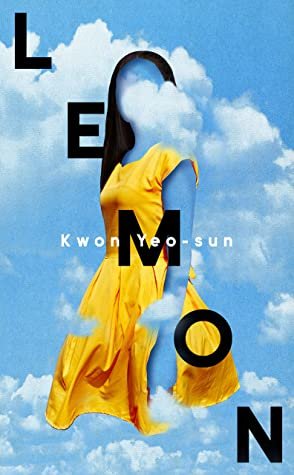Lemon by Kwon Yeo-sun
Review of Lemon by Kwon Yeo-sun, translated by Janet Hong
“Did the pages of his life hold any meaning? Probably not. At least that’s what I believe. Just like how I believe life has no special meaning. Not his, not my sister’s, not even mine. Even if you try desperately to find it, to contrive some kind of meaning, what’s not there isn’t there. Life begins without reason and ends without reason. ”
Lemon by Kwon Yeo-sun (2021). Published in English by Apollo.
Korean literature is my jam, and it has been for years. I remember in high school I’d try my hardest to get my hands on some of the only translated works of the poet Kim Hye-soon or of short story anthologies by women. Now, in 2022, it’s a lot easier to get a copy of Korean literature translated, but man I would never take for granted what we have now.
It’s such a blessing to be able to read the authors around the world, and because Korean literature has become so popular people have a demand for these books. I’m truly grateful as someone with mediocre Korean skills.
Lemon has been on my to-read list for a long time now, and it wasn’t until recently that I got a chance to read it. I’ve been on a writing kick about writing about women’s violence and murder, and this book seems like it came into my life at the perfect time. That’s the topic of this book, so if you’re triggered by that, don’t read it.
I had little expectations outside of knowing the premise of the book, so I came out of it pleasantly surprised. It’s a very short novel, could even be considered a novella, so it won’t take you long to read at all.
Let’s dive into this review!
Three different narrators take a look at an eighteen-year-old girl’s murder.
Lemon takes a singular event and looks at it from many angles. We learn a girl, named Hae-on, has been murdered around the time of the 2002 World Cup in Korea, and that there are two initial suspects. The first suspect is a rich boy whose car she was spotted in, but he has an alibi and thus gets off scot-free.
As a reward, his parents send him to study abroad in America. The other suspect is a poor boy, another classmate of Hae-on, and had driven past the car she was in. He was on a motorcycle with the rich guy’s sister, and then the poor boy lies to a cop about actually seeing it (it’s the girl who saw everything).
We start the novel with the cop interrogating the poor boy, then we see how his life is basically ruined because everyone at school takes the rich kid’s side. There’s a specific class angle going on here, because we find out later in the book that he has cancer in his legs and his mother suffers from dwarfism.
They all live in the same apartment with his sister, and none of them are educated. They work service jobs and are the definition of good, honest people according to the narrator who befriends them: Hae-on’s sister.
The second narrator is a woman who was friends with Hae-on’s sister Da-on. She recalls how vibrant Da-on was before the murder, and then describes how she accidentally met years later. Da-on asks the narrator if she still writes poems, because they knew each other through the creative writing club.
Da-on liked her poems, but the narrator says she doesn’t write them. It’s at this point we discover that Da-on got plastic surgery to look like her sister, which we later find out her mother kind of encouraged.
The final narrator is Da-on herself. We find out about how her father died when they were young, then how her mother and she just existed after Hae-on’s death. Lots of turbulent thoughts here, then Da-on describes the surgery she got to look like her sister. We then see how she finds solace by going to meet the poor kid, befriends his family, and then disappears before he dies of cancer.
This isn’t a novel that will not give you answers. You will never find out who did it, though you will have your suspicions due to one narrator calling a therapist and implying that the rich kid ended up being the one who murdered her.
Hae-on’s sister, Da-on, also recalls that Hae-on never wore underwear and discovers that she wasn’t on that day, but was also spreading her legs while in the rich kid’s car while wearing a dress. I got a sense of sexual violence and murder from that description, although there is nothing actually confirmed.
I think the most interesting part of this novel is about how it takes this one event and looks at it from all of these biased angles. Often we get a single narrative about how things went down and get a sense of justice by the end, but this book subverts the tropes of the genre and turns it into something new.
Overall Thoughts
I think, perhaps, the thought was well-intended for this concept. The book overall, though, felt like it was missing something important. It jumps around in these narrator’s heads but it does it for such a short amount of time, leading to potential confusion for the reader.
I was confused when we got to the girl calling the therapist. I think we didn’t need the implication of who actually did it, we could’ve gotten the message and themes even if we had the little confession time there. I would’ve preferred it be open-ended, because it’s all about perspective.
Da-on seems the poor boy and his family as good, honest people, and we didn’t need to hammer home that the world sucks if you’re not rich. I think this is a book worth reading, but is lacking in some departments.
